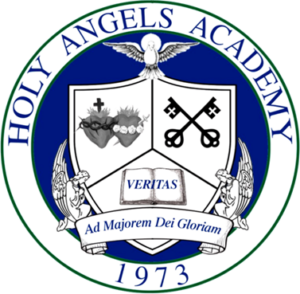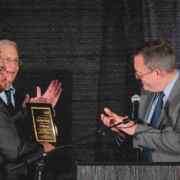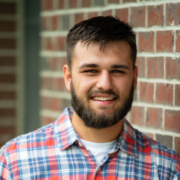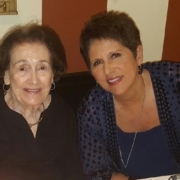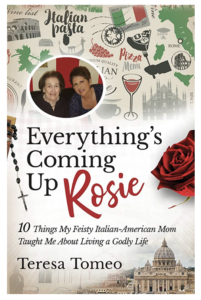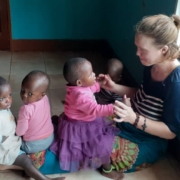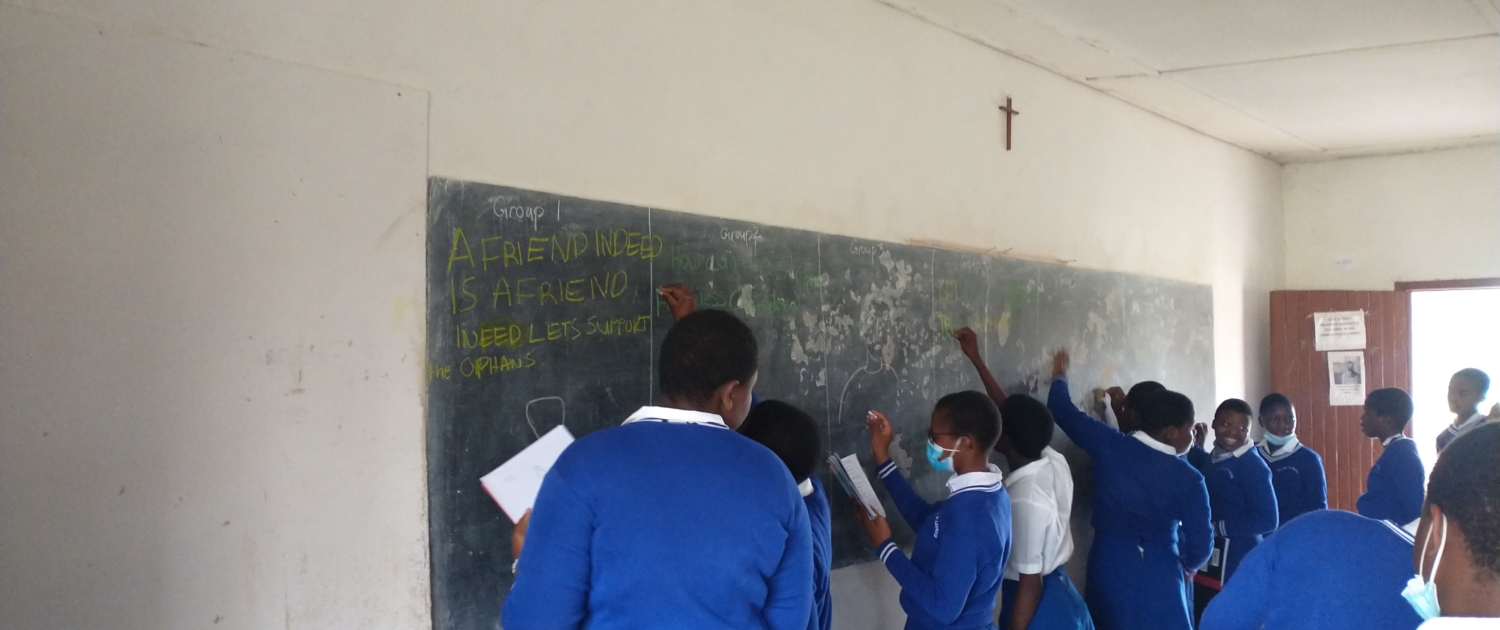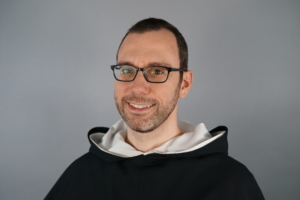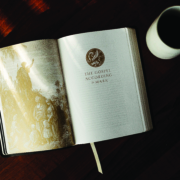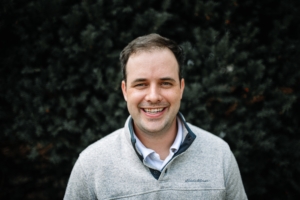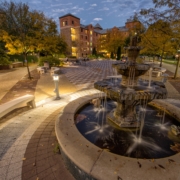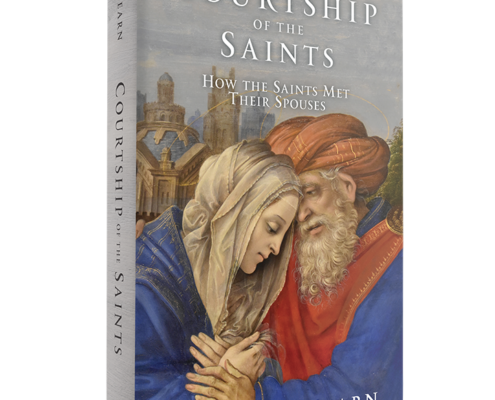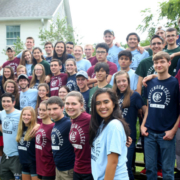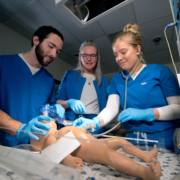Celebrating Every Kind of Catholic Education
Classical schools… Great Books colleges… homeschool programs… trade schools…
What are we to make of the wide and growing variety of Catholic education options?
As Catholic education keeps getting better, The Cardinal Newman Society (CNS) believes that we need to celebrate the very best, regardless of form. Exemplary educators deserve to know how much they are appreciated by Catholic families, and others need models to follow. Catholic families should know where to get the best formation. These are all reasons for The Newman Guide.
But is it all “Catholic education”?
Many in the Church today think of Catholic education as the equivalent of parochial schools. And to be sure, parochial schools have held pride of place in the United States for many decades and continue to do so. CNS works extensively to aid parish and diocesan schools and their leaders, whose commitment to fidelity and strong formation is crucial to evangelization in America.
But Catholic education is not a method or institution; it can be served well or poorly by various methods and institutions, just like healthcare or assistance to the poor. Catholic education is an art, a vocation, and a ministry. It cultivates the intellect by the aid of grace and the truth of Catholic doctrine, within an integral human formation that is ordered to full communion with God.
While its mission should remain constant, Catholic education’s response to various family circumstances and student needs has required several methods and school structures including homeschooling, parish schools, monastery schools, boarding schools, trade schools, residential colleges, research universities, online programs, and variations on these. Catholic education simply cannot be limited to any particular method or institution, without unjustly excluding portions of Catholics who were promised formation in the faith as a right of Baptism.
Catholic education also cannot be limited to any age group, as if the opportunity to know God and His creation expires at a certain age. Of course, formation of the mind and character is especially important for young people.
That’s why we are so excited to expand our Newman Guide recognition to include a wide variety of elementary and secondary schools, colleges, and graduate programs—and soon homeschool programs as well. And it’s why CNS eagerly assists and promotes all kinds of educational programs that faithfully serve the Church’s mission of evangelization.
Independent schools
One new and growing segment of Catholic education is independent schools, not affiliated with any parish, religious order, or other Church entity. And the longest-operating independent school is Holy Angels Academy in Louisville, Ky., faithful to Catholic teaching and authority and devoted to the true mission of Catholic education.
In June, marking Holy Angels’ 50th anniversary and more than five decades of independent Catholic schools, CNS President Patrick Reilly and Vice President of Educator Resources and Evaluation, Dr. Denise Donohue, were among the featured speakers at a large celebration in Louisville. Reilly presented a commemorative plaque to Academy headmaster Michael Swearingen and longtime leader Joe Norton announcing to more than 600 educators, parents, and alumni the Academy’s recognition in The Newman Guide. Participants included representatives of other independent schools nationwide and the Institute for Catholic Liberal Education.
Donohue had a dual role at the event, representing both CNS and the National Association of Private Catholic and Independent Schools (NAPCIS). Donohue and our senior fellow Dr. Dan Guernsey are both long-time board members of NAPCIS and founding leaders of independent Catholic schools in Texas and Florida, respectively. Donohue addressed the Holy Angels celebration with a message from Dr. Eileen Cubanski, whose leadership of NAPCIS has been instrumental to the growing independent school movement.
Donohue also researched and authored a special report on the importance and history of independent Catholic schools, which is available on the Society’s website. The report is being shared with dioceses, schools, and Catholic media to promote better understanding of their unique contributions to Catholic education.
Historically, Catholic schools have been affiliated with religious orders, parishes, dioceses, and other Church entities. But independent schools arose in the late 1960s and 1970s, when many religious orders abandoned parochial schools and the schools lost focus of their mission. Since then, the Church has embraced lay vocations in teaching and administration, and today more than 97 percent of parochial school employees are laypeople.
Therefore, parents should be applauded for developing new schools when needed to ensure the sound formation of their children in fidelity to the Church. According to NAPCIS, the first known independent school was Holy Innocents Academy in Kinnelon, N.J., founded in 1967 by Dr. William Marra. That school eventually closed, and thus Holy Angels Academy in Louisville—founded in 1973 by a Dominican nun in partnership with Catholic families—is the longest-operating independent school today.
The Academy has a student body of 101 students in grades PreK-12 and used a classical approach even before it gained its current popularity. The school’s motto, ad majorem Dei gloriam (for the greater glory of God), is evident in its religious practices. Students attend daily Mass and recite the Morning Offering, with prayers to St. Michael and their guardian angels.
Today, according to Donohue’s report, there are 82 member schools in NAPCIS, including 20 that joined since 2010. About an equal number of independent schools have been launched but closed their doors due to financial struggles. Starting and maintaining a school without parish support can be difficult, but it’s all the more reason CNS promotes these schools and helps them develop strong policies and protect against ideological threats.
